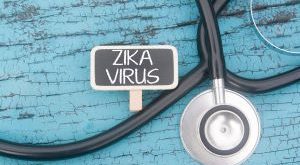In medical education, resilience training is very important for aspiring healthcare professionals and doctors. The training helps doctors and healthcare professionals to deal with high stress situations involved in their daily medical life. The constant pressure can affect their mental and emotional well-being. By incorporating resilience training into the curriculum of any medical institution, the students can be trained in different strategies to handle high-pressure situations and manage stress effectively.
This type of training helps students to build essential qualities such as emotional intelligence, develop coping mechanisms, and cultivate a strong sense of self-care. Moreover, it promotes teamwork, communication skills, and adaptability for successful healthcare professionals who often work in fast-paced environments where quick thinking is necessary.
Eventually, by focusing on resilience training in medical education, future doctors are better prepared to overcome difficulty, maintain a healthy work-life balance, and provide optimal care to their patients in the face of challenges.
As per the report, 40% of healthcare professionals and doctors in India fail to follow protocol and are unable to make firm decisions because of work stress and lowered clinical care.
Understanding Resilience in the Context of Medical Education
Resilience is the ability to recover quickly from harsh conditions and adjust positively to challenges. In the context of medical education, resilience prepares the students to do well in high-pressure environments, handle obstacles effectively, and maintain a sense of well-being despite the high demands of their profession. Thus, preparing them to handle stressful situations with efficiency. In the medical field, where students often deal with various stressful situations such as long working hours, high stakes decision-making, and emotionally charged encounters with patients, nurturing resilience is essential for their personal growth and professional success. It involves developing coping strategies, self-awareness, emotional intelligence, and a support system to recover from burnout and improve mental strength.
The Benefits of Resilience Training for Healthcare Professionals
There are numerous benefits a healthcare professional can have from resilience training, including the ability to manage stress, prevent burnout, and enhance overall well-being while providing the best possible care for their patients. By learning coping mechanisms and effective stress management techniques, healthcare professionals can improve their job performance, communication skills, patient outcomes and handle challenging situations with confidence and grace. Additionally, resilience training creates a supportive work culture, where healthcare professionals can have faith in each other for support and guidance during times of crisis or when dealing with difficult patients or colleagues.
Utilizing Stimulation Labs to Enhance Practical Learning
In addition to incorporating mindfulness exercises, stress management techniques, and self-care strategies into the curriculum, medical institutions can significantly benefit from the integration of Stimulation Labs. These labs serve as invaluable assets in providing hands-on experience and practical learning opportunities for aspiring healthcare professionals. Stimulation labs simulate real-life medical scenarios, allowing students to apply theoretical knowledge in a controlled environment.
Stimulation labs offer a safe space for students to practice critical decision-making, refine clinical skills, and familiarize themselves with high-pressure situations before they actually practice in the real-life situation. By immersing themselves in simulated scenarios, students can develop confidence, improve communication skills, and learn to collaborate effectively with multidisciplinary teams.
Strategies for Implementing Mental Well Being among Medical Professionals and Students
Incorporating resilience training into medical education requires an innovative approach that addresses the unique needs of healthcare professionals. This may include incorporating mindfulness exercises into the curriculum, providing resources for stress management techniques like meditation or yoga, and self-care strategies into the curriculum. Additionally, nurturing mentorship, peer support, and resources for mental health and well-being can enhance the effectiveness of resilience training. Institutions can ensure that their employees are well equipped with their roles and provide quality care to their patients by creating a comprehensive program that highlights the mental and emotional well-being of healthcare professionals.
Conclusion
Training in Mental Well Being should be made an integral part of Medical Education. Nurturing the well-being of healthcare professionals and enabling them to face challenges of their profession with grace and resilience. By investing in such training, institutions can support the mental and emotional well-being of their staff, ultimately leading to improved job performance, job satisfaction, and patient outcomes. Building resilience is not just a professional necessity but also a personal quality that empowers healthcare professionals to succeed in their careers and lead fulfilling lives.
By: Dr Girish Maindarkar, Counsil Member, CPS(Mumbai)
 Newspatrolling.com News cum Content Syndication Portal Online
Newspatrolling.com News cum Content Syndication Portal Online



